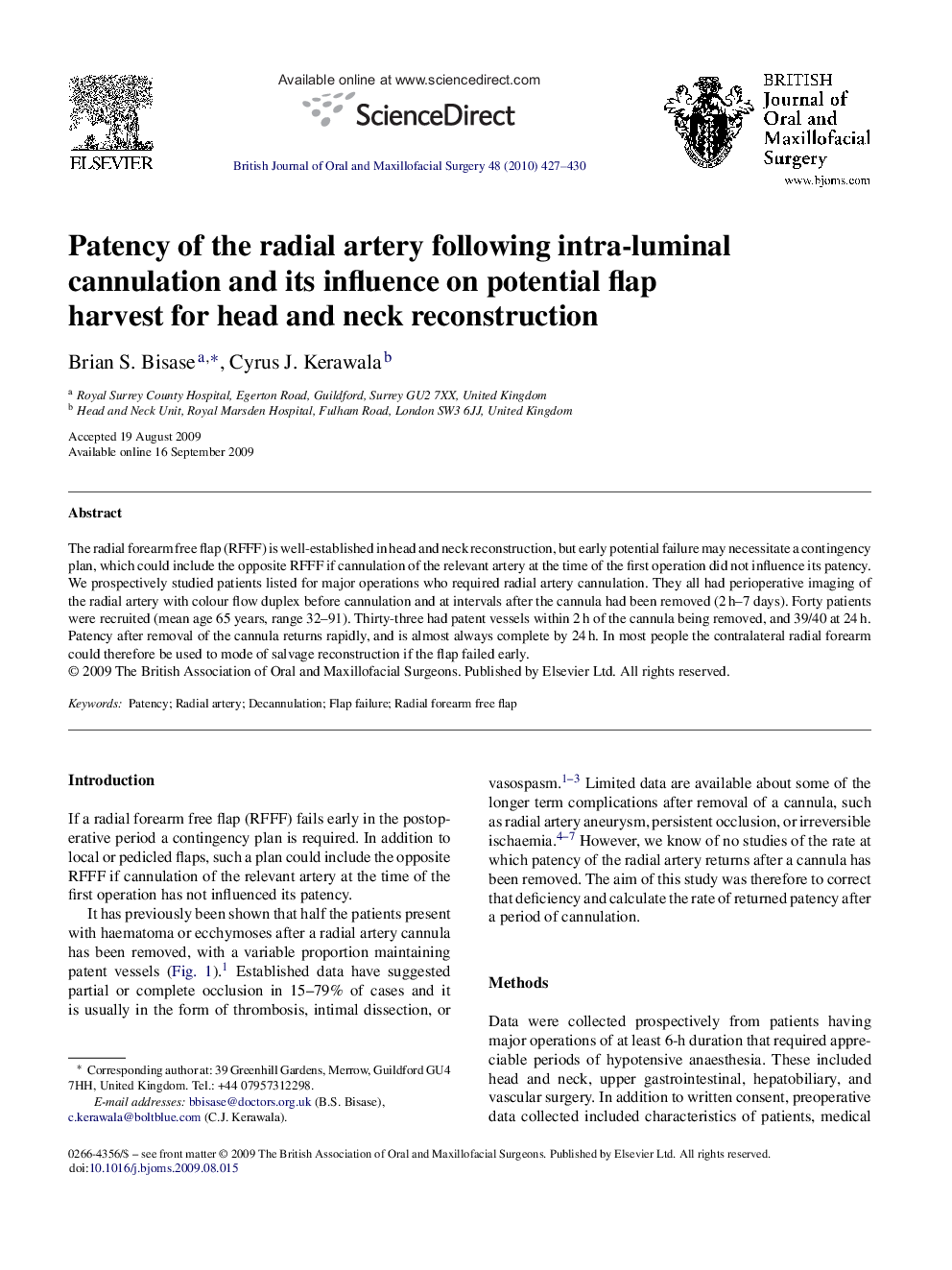| Article ID | Journal | Published Year | Pages | File Type |
|---|---|---|---|---|
| 3124550 | British Journal of Oral and Maxillofacial Surgery | 2010 | 4 Pages |
Abstract
The radial forearm free flap (RFFF) is well-established in head and neck reconstruction, but early potential failure may necessitate a contingency plan, which could include the opposite RFFF if cannulation of the relevant artery at the time of the first operation did not influence its patency. We prospectively studied patients listed for major operations who required radial artery cannulation. They all had perioperative imaging of the radial artery with colour flow duplex before cannulation and at intervals after the cannula had been removed (2Â h-7 days). Forty patients were recruited (mean age 65 years, range 32-91). Thirty-three had patent vessels within 2Â h of the cannula being removed, and 39/40 at 24Â h. Patency after removal of the cannula returns rapidly, and is almost always complete by 24Â h. In most people the contralateral radial forearm could therefore be used to mode of salvage reconstruction if the flap failed early.
Related Topics
Health Sciences
Medicine and Dentistry
Dentistry, Oral Surgery and Medicine
Authors
Brian S. Bisase, Cyrus J. Kerawala,
